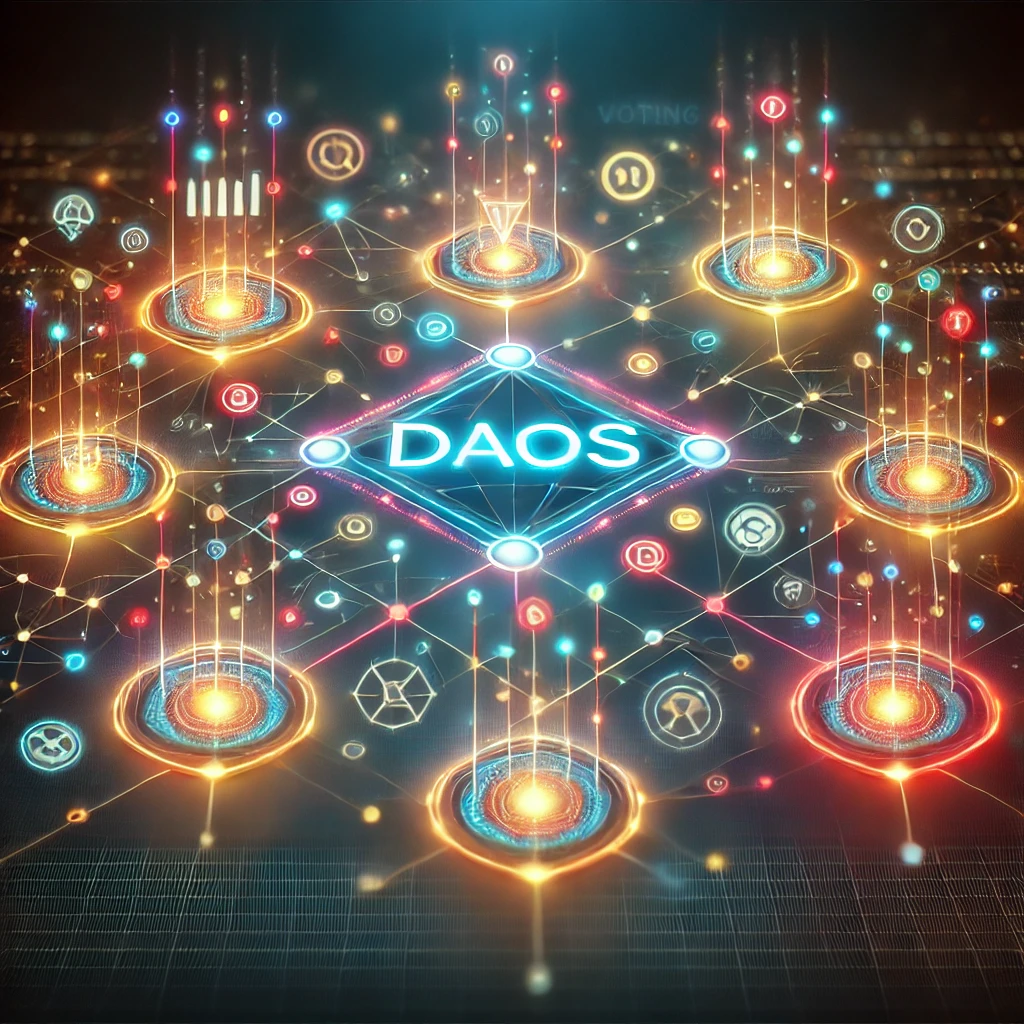In the rapidly evolving world of blockchain and digital assets, Decentralized Autonomous Organizations (DAOs) are emerging as one of the most fascinating innovations. DAOs are reshaping the way organizations operate by enabling collective decision-making, transparency, and trust through smart contracts on the blockchain.

What is a DAO?
A Decentralized Autonomous Organization (DAO) is a community-led entity with no central authority. Unlike traditional organizations, DAOs operate on blockchain technology, where rules and governance are encoded in smart contracts. These smart contracts execute automatically based on pre-set conditions, ensuring transparency and eliminating the need for intermediaries.
Key features of DAOs include:
- Decentralization: Decisions are made collectively by members through voting mechanisms.
- Transparency: Every decision and transaction is recorded on the blockchain, accessible to all members.
- Autonomy: Once deployed, a DAO operates independently according to its predefined rules.
How Do DAOs Work?
DAOs function by leveraging blockchain and smart contracts. Here’s how they typically operate:
- Smart Contract Deployment: The foundational rules of the DAO are written into a smart contract and deployed on a blockchain.
- Funding and Token Distribution: To join the DAO, members often purchase or earn governance tokens, which grant voting rights and a stake in the organization.
- Proposal and Voting: Members submit proposals for the organization’s direction or operations. Proposals are then voted on, and decisions are executed automatically based on the outcome.
- Execution: Approved proposals trigger predefined actions via the smart contract, such as transferring funds or initiating projects.
Real-World Applications of DAOs
DAOs are being utilized across various sectors, showcasing their versatility:
- DeFi Protocols: Managing decentralized finance platforms where token holders vote on interest rates, fee structures, and new features.
- Investment Clubs: Pooling resources to invest collectively in digital assets or startups.
- Charitable Organizations: Ensuring transparent fund allocation and decision-making for philanthropic efforts.
- Creator Communities: Supporting artists, developers, or content creators by allowing fans and stakeholders to influence the project’s direction.
Benefits and Challenges
Benefits:
- Global Accessibility: Anyone with internet access can participate.
- Trustless Operations: Smart contracts eliminate the need for intermediaries, reducing costs and potential biases.
- Enhanced Transparency: All actions are recorded on the blockchain, fostering trust among members.
Challenges:
- Regulatory Uncertainty: The legal status of DAOs varies by jurisdiction, creating potential compliance hurdles.
- Security Risks: Vulnerabilities in smart contracts can be exploited if not properly audited.
- Decision-Making Efficiency: Collective governance can be slow, especially with large communities.
The Future of DAOs
As blockchain technology matures, DAOs have the potential to revolutionize traditional governance structures. They empower individuals to collaborate on a global scale, breaking down barriers imposed by geography, intermediaries, or traditional hierarchies.
By combining decentralization with autonomy, DAOs are setting a new standard for transparency and inclusivity in decision-making. Whether in finance, community building, or philanthropy, their impact is just beginning to unfold.
